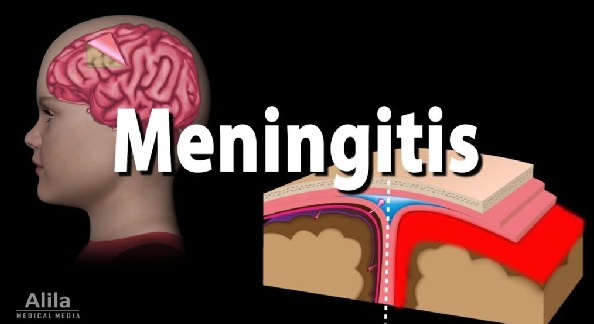
Meningitis season: Let’s be extra careful
ON Tuesday, February 6, the Daily Graphic reported a health alert on the possible outbreak of meningitis if the country continued to experience a prolonged harmattan season, as it would increase the risk of people suffering from sore throat, headache, fever, general bodily pains and others that are all symptoms of meningitis which has a higher risk during the dry season.
The Deputy Director in charge of Surveillance at the Ghana Health Service, Dr Dennis Odai Laryea, who issued the alert, therefore, called on the general public to report to the nearest facility if they experienced any of the symptoms to ensure early diagnosis of possible cases of meningitis for appropriate and early treatment.
He said there was no routine vaccination for adults, but in outbreak situations, they would receive reactive vaccination depending on the organism they were dealing with.
There have been seasonal reports of meningitis in Ghana normally during the dry periods from October to March. During these periods, which are characterised by low humidity and an abundance of dust, individuals become susceptible to meningitis infection. Meningitis is mainly endemic in the three northern regions of the country where the weather around this period is mainly dry.
Meningitis is potentially fatal within 24 hours and requires urgent medical attention. It usually cannot be safely cared for at home; that is why it remains a major public health challenge in the country.
In 2023, for instance, the country recorded 12 deaths due to suspected meningitis out of a total of 321 suspected cases reported across the 16 regions of the country.
For 2022, out of the 502 suspected cases reported across the country, 11 died and out of the 487 suspected cases tested in laboratories, 28 were confirmed to be positive.
The Daily Graphic sees the caution by the health authorities as timely and urges the public to be mindful of the symptoms and not waste time in reporting to the health facilities for the necessary attention. This is because as we have been informed, meningitis is a devastating disease with a high case fatality rate which can lead to serious long-term complications.
We ,therefore, urge all citizens to be mindful and report common symptoms of the disease which include neck stiffness, fever, confusion or altered mental status, headaches, nausea and vomiting.
Though seizures, coma and neurological deficits such as hearing or vision loss, cognitive impairment or weakness of the limbs have also been identified as less frequent symptoms, we charge the population not to take any of these for granted but to report promptly to the nearest health facility for diagnosis and treatment if they turn positive.
Particularly, we ask people living in close proximity, for example at mass gatherings, in refugee camps, in overcrowded households or in student, military and other occupational settings to take precautionary measures and not delay in getting to a medical facility, if they identify any of the symptoms, as people living in these areas have been identified as being at a higher risk of contracting the disease.
We commend the GHS for adding the pneumococcal vaccine into the country’s routine immunisation programme, so children can receive the vaccine to protect them from pneumonia, meningitis and other infections caused by those organisms.
The Daily Graphic calls for more public education on meningitis at health facilities and communities as we continue to be in the dry season.
We also call for a stockpile of drugs including antibiotics, IVFs and vaccines to be made readily available as the dry season rages.
The general public must endeavour as much as possible to avoid overcrowded places, sneezing and coughing in crowded places.
People must also drink a lot of water at this time, improve ventilation by opening windows in their rooms and report to the nearest health facility when one has a fever, headache and neck stiffness.
